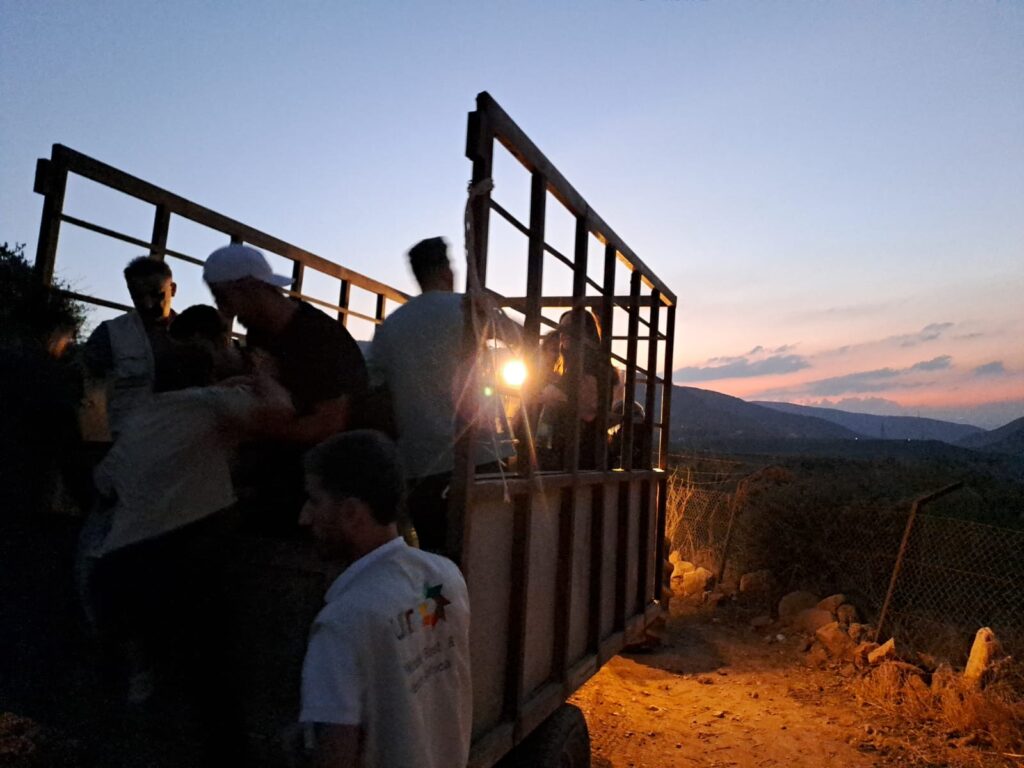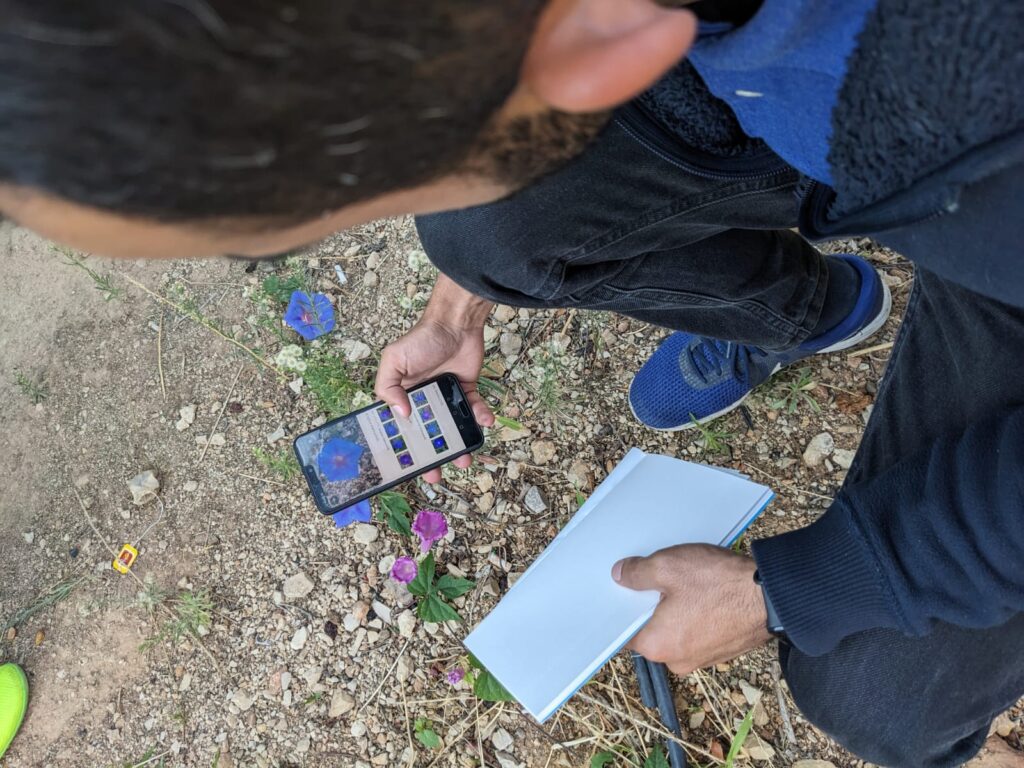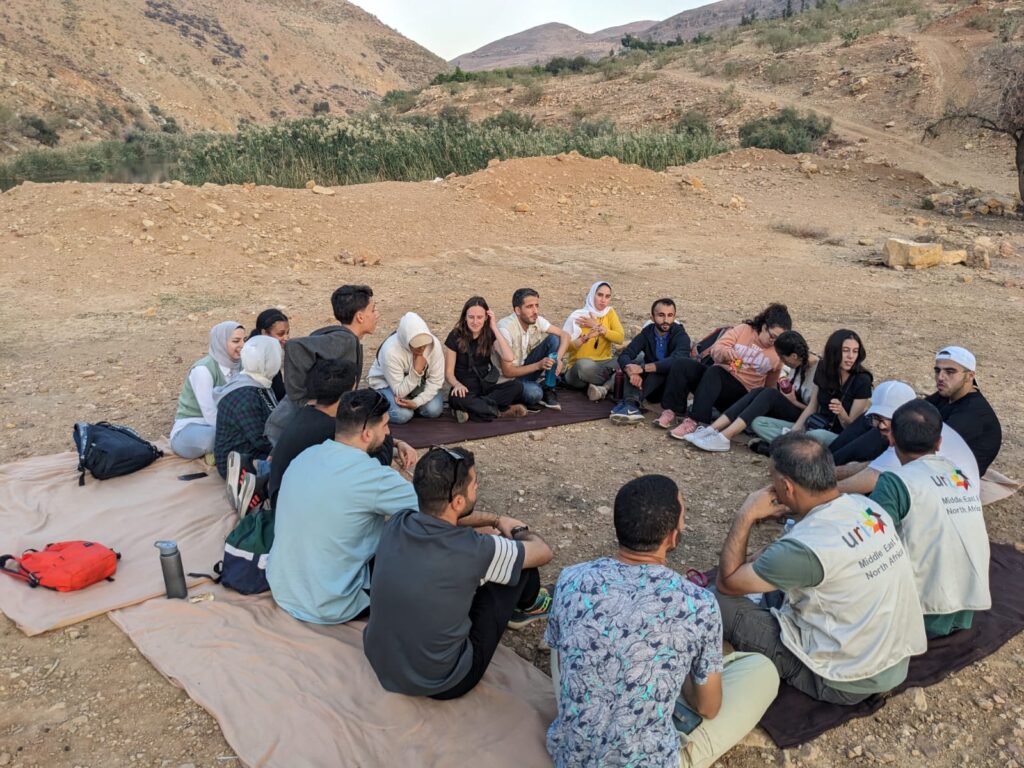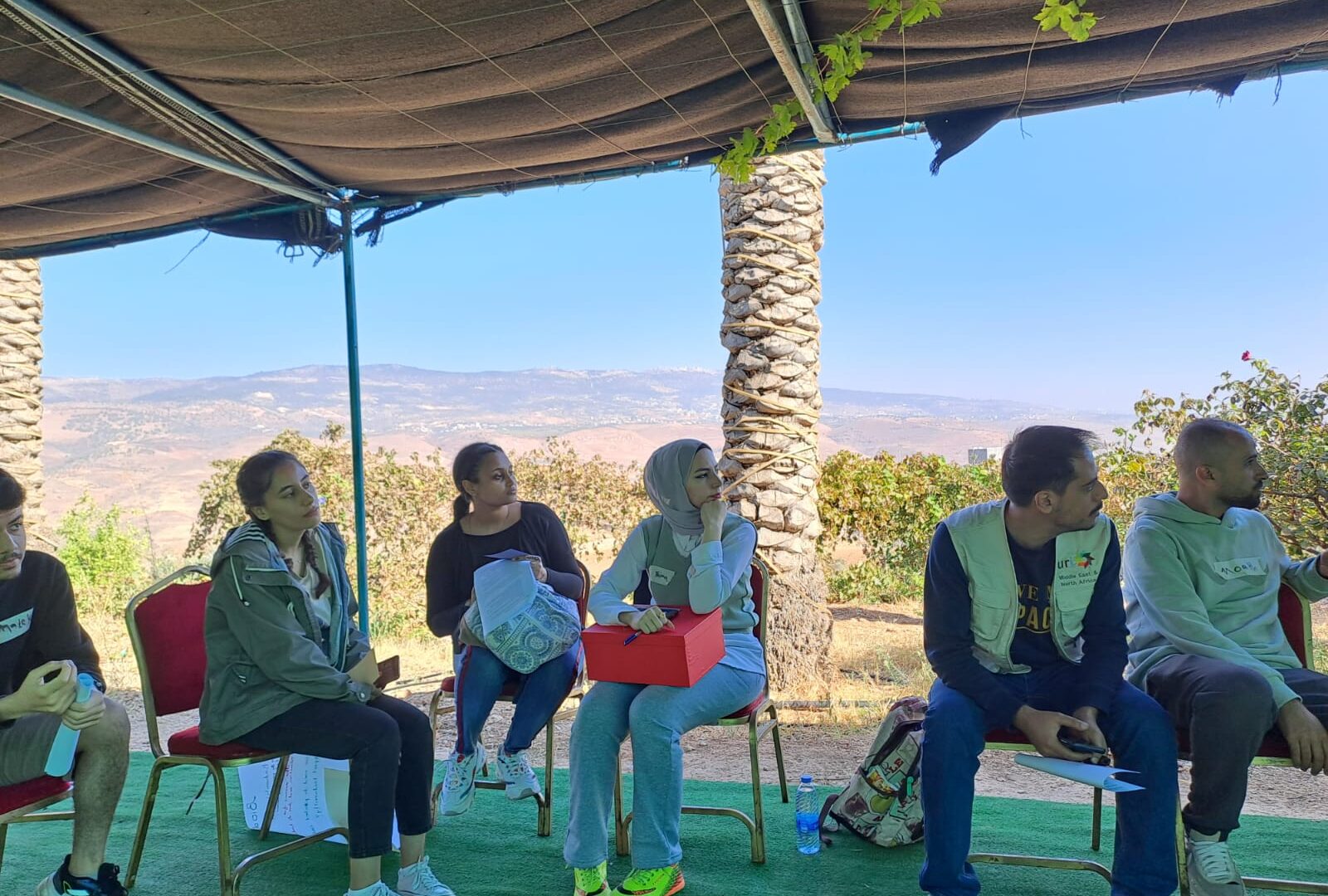A day full of new knowledge, fun, experiences and unexpected adventures.
November 2023 – Meet Nature
On the 18th of November URI Mena facilitated the workshop “Meet Nature”, where the focus was about our ecological environment. Through the combination of scientific presentations, discussions, interactive games, art and hiking we experienced the topic with many different perspectives and senses. After meeting at our office in Tla al Ali, we drove to our destination at Bayyudah Village near As- Salt. There we meet our host Ilham, who is an environmental activist and well known in the area for different ecological projects, especially for her tree-planting initiatives.
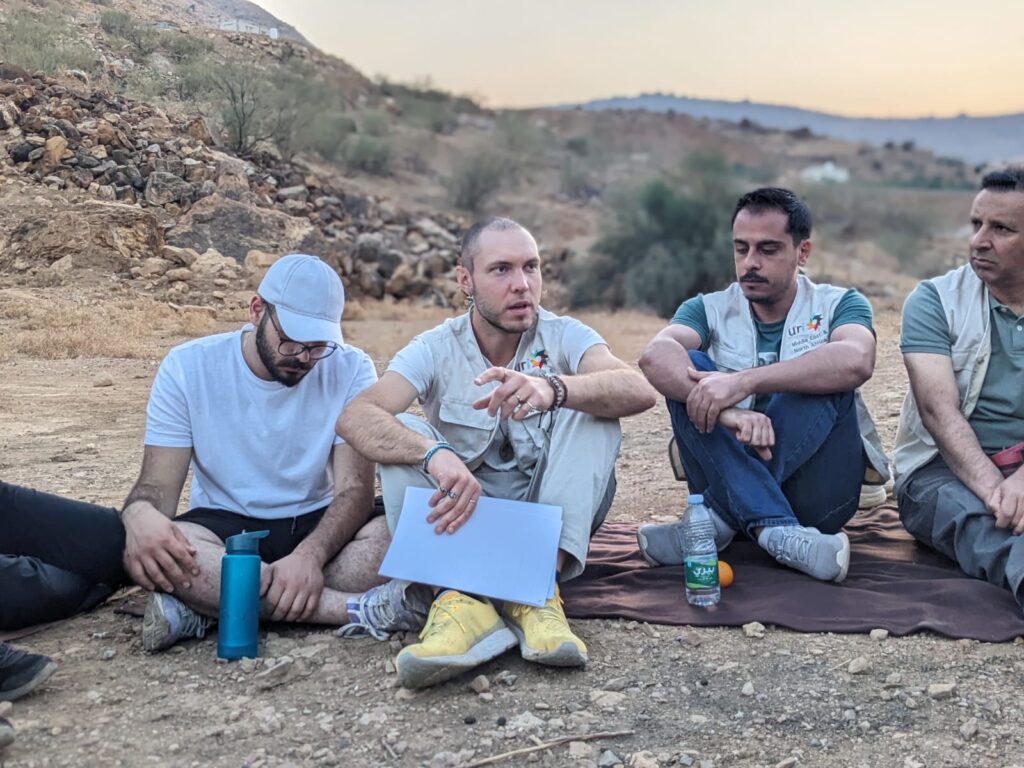
It is all about the Climate – Greenhouse effect
At the beginning of our workshop, we divided our group into four smaller groups. Each group was given different topics related to the complex phenomena of the climate crisis and prepared a small presentation, so that everyone became a specialist in a specific area and was able to share the new knowledge with the group. The first topic gave us a brief idea about the greenhouse effect. The greenhouse effect is a natural process that warms the Earth’s surface. When the sun’s energy reaches the Earth’s atmosphere, some of it is reflected back into space and some is absorbed and re-emitted by greenhouse gases. Because human activities produce a large amount of greenhouse gases, global warming is increasing rapidly, with high risks to humans and the ecological environment.
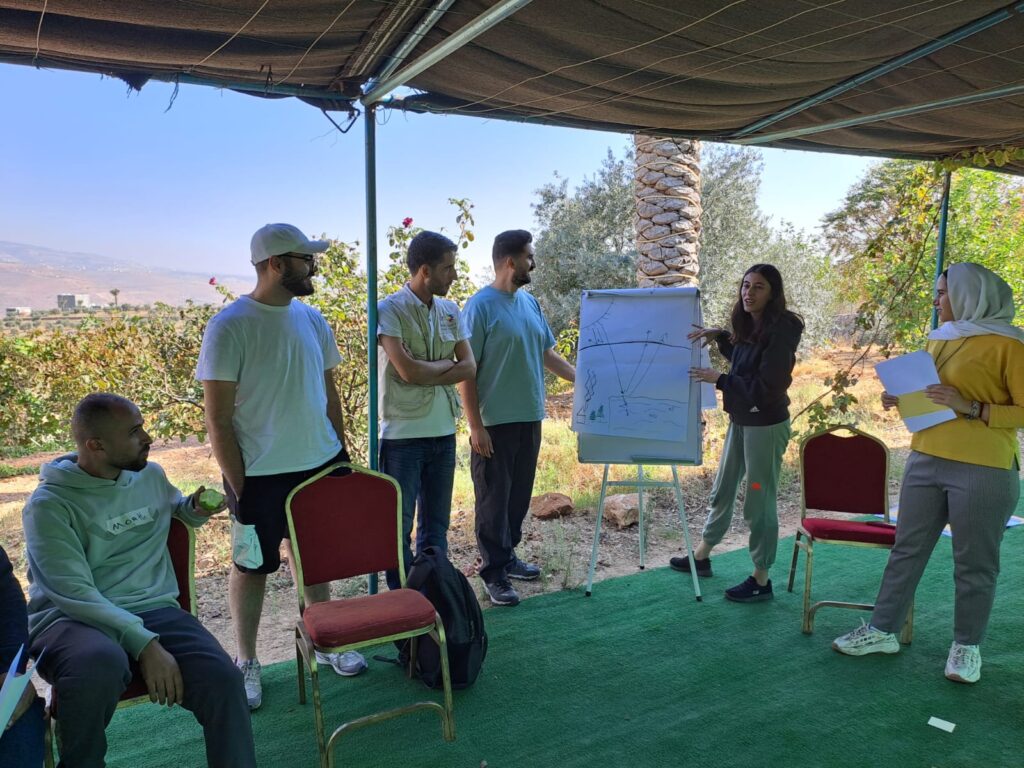
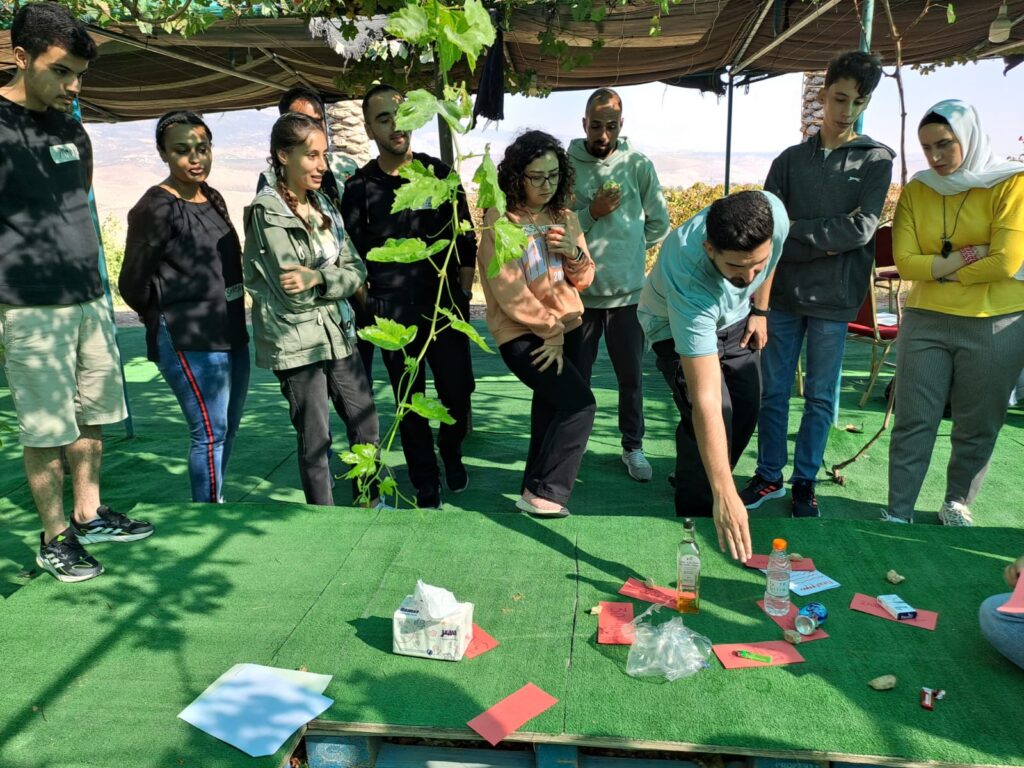
How long does my trash lives?
The next part of the workshop was about the negative consequences and human behavior regarding garbage and its disposal. The huge amount of garbage we produce has a negative impact to our health and the planetary health. Trash contaminates our air, water, food and harms the ecological environment, especially when it is not disposed correctly. Through that our bodies contain a lot of microplastic with huge risks for human health. Litter also affects mental health and well-being. Living in areas with high levels of litter and waste can contribute to feelings of stress and reduced overall well-being. Garbage reduces the quality of life. To raise awareness of the huge amount of time it takes for our trash to decompose, we matched nine different items according to how long it takes to decompose. We were very surprised how long our garbage lives. Hundreds and thousands of years trash remains in our environment and cause damage to nature. The game showed us how important it is to reduce, recycle and properly dispose of our garbage.
Climate Crisis and Climate Justice
The concepts of climate crisis and climate justice were introduced to us through an impressive theater performance by the participants. Climate crisis is a term, that describes the ongoing and increasingly severe impacts of climate change. No corner of the world is immune to the devastating effects of the climate crisis. Rising temperatures are fueling environmental degradation, natural disasters, extreme weather, food and water insecurity, economic disruption, conflict and terrorism. Because of all these impacts, people in many areas are no longer able to live and are forced to leave their homes, what we call climate refugees. The International Organisation for Migration (IOM) estimates that between 150 and 200 million people worldwide will be displaced by climate change by 2050The reason it is called a climate justice crisis is because of the inequality and difference in vulnerability. The richest 1 percent damages the climate twice as much as the entire poorer half of humanity, and the richest 10 percent (630 million people) are responsible for more than half (52 percent) of CO2 emissions between 1990 and 2015. While climate change is a global phenomenon, its negative impacts are felt more severely by poor people and poor countries. They are more vulnerable because of their high dependence on natural resources and their limited resources to cope with climate variability and extremes. They are superimposed on the reduced access to drinking water and the security of food supplies. The climate crisis is therefore also a social crisis and a crisis of justice.
Without water there is no life
To deepen our understanding of the value of water, Sufian tested our knowledge through a water quiz. The quiz allowed us to talk about the privatization of water, the waste of water, and raised our awareness as we learned every third person has no access to drinkable water. We were also very surprised how much water is needed to produce things in our daily lives. For example, it takes 130 liters of water to produce one cup of coffee and 15,000 liters to produce one kilogram of beef. Especially in Jordan, a country with almost no water resources, it is important to save water. But in Europe and around the world, water scarcity caused by climate change is making water security an urgent issue.
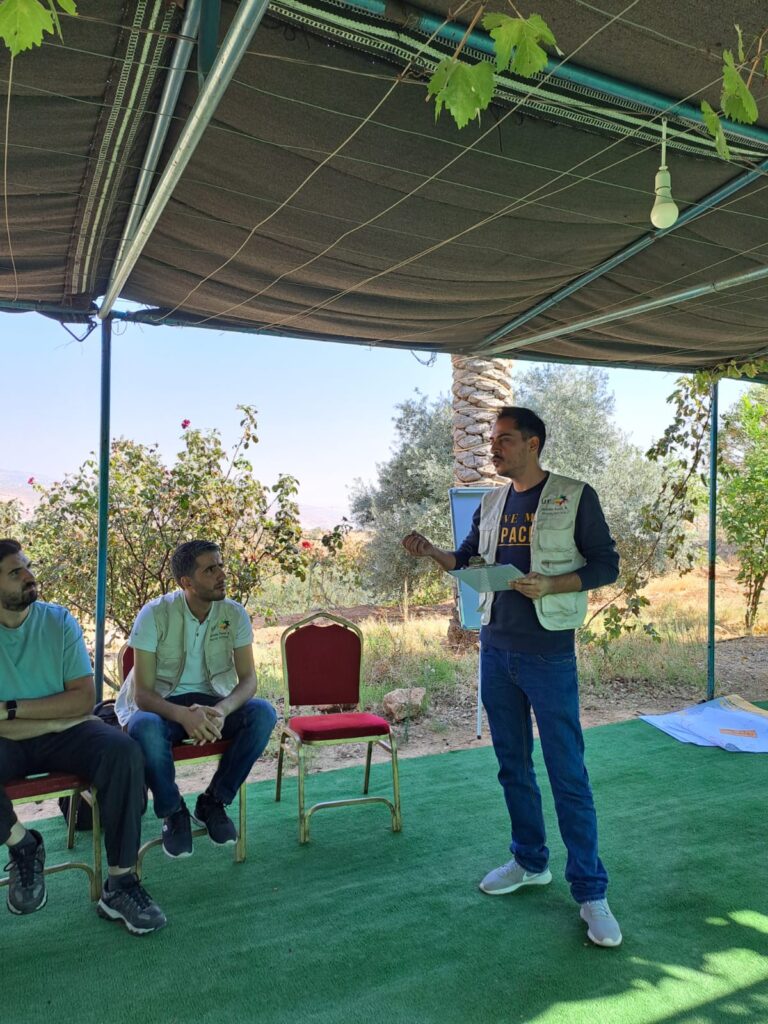
Biodiversity
The third group presented information about the high value of biodiversity. Biodiversity is the variety of all forms of life and the wide range of animals, plants and microorganisms that provide us with the air we breathe and the food we eat. Biodiversity is essential for maintaining the health and functioning of ecosystems, which in turn provide a wide range of services essential to human survival and well-being. The ecosystem services from which we benefit are often invisible, but biodiversity regulates our climate, fertilizes and nurtures the soil, pollinates our food, provides us with medicines, clean air and water, and has cultural, spiritual and recreational significance for many communities. It is in our best interest to protect and conserve biodiversity to ensure a sustainable and healthy future for ourselves and future generations. As 150 species become extinct every day, and we lose the stability and power of our biodiversity through massive resource use and destructive lifestyles, we must protect the environment on which we depend in so many ways.
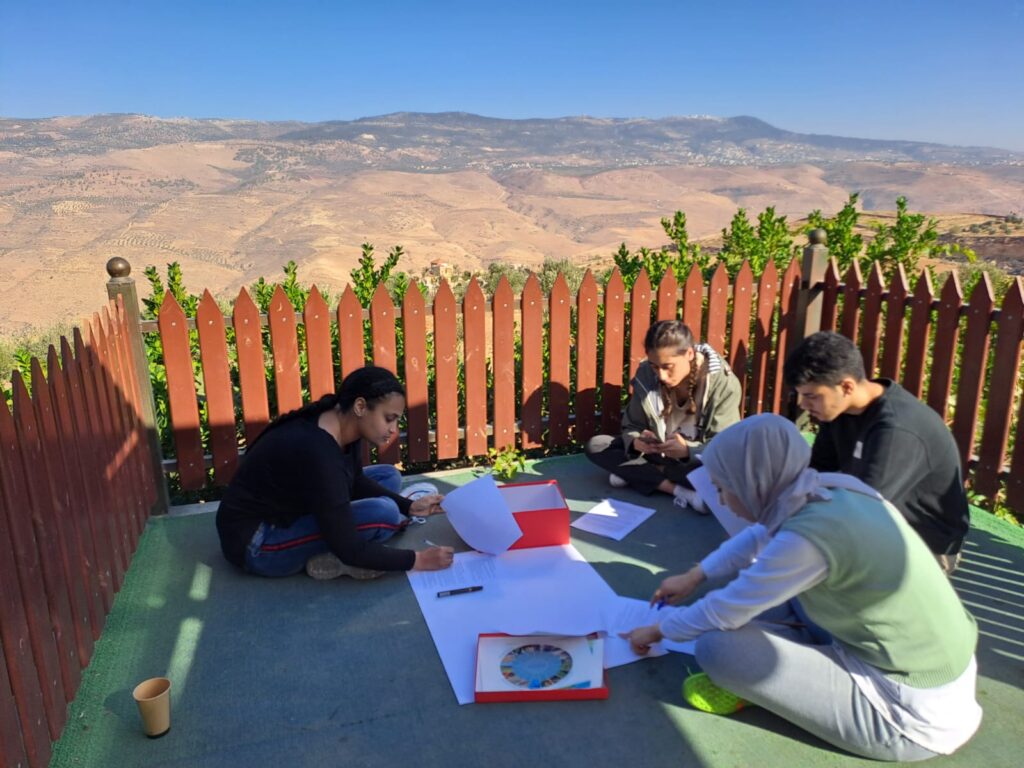
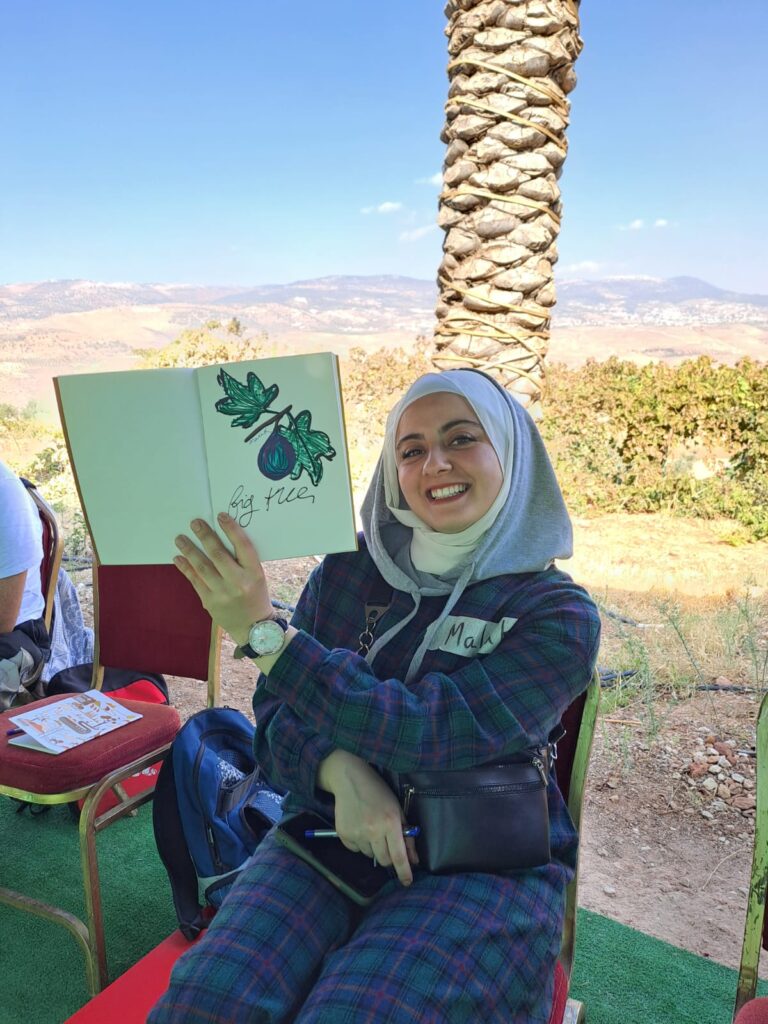
Find your personal plant
Despite all the concrete and lack of natural environment in our lives, many of us don’t know much about the beautiful ecosystem that surrounds us. Therefore, in the next part of our workshop, we explored the plants and trees at our location. Using plant identification apps, we were able to identify the different plants and trees and find out more useful information about them. After exploring for some time, we chose our personal plant to introduce to the group and draw a picture of it. It was nice to see all the unique drawings and learn more fascinating facts about different plants.
Food and Climate Crisis
The last group introduced us to the connection between food and the climate crisis. The way we eat has a huge impact on the natural environment, people and animals, and it is an easy way to support the health of the planet and our own health. Food must be grown and processed, transported, distributed, prepared, consumed, and sometimes disposed of. Each of these steps contribute to the Climate Crisis. About one-third of all human-caused greenhouse gas emissions are related to food and about 14.5% of all human-caused greenhouse gas emissions come from animal agriculture. Animal-based foods are associated with the highest greenhouse gas emissions and negative impacts due to water pollution, deforestation etc. Plant-based foods generally use less energy, land and water and have lower greenhouse gas intensities than animal-based foods. Not only does the planet benefit from a plant-based diet. Human health is also improved by eating more plant based meals. The Planetary Health Diet the group has introduced to us aligns planetary health with human health. If we change the way we produce and eat food, we could feed more than 11 billion people in the world. The group also made us think about the huge amounts of food waste that could feed every malnourished person on the planet. They introduced us to different ways to reduce food waste, such as good planning, creative use of leftovers, useful apps, and other approaches.
After so much information and finishing scientific input part of the workshop by talking about food, we enjoyed our break with a great view and vegetarian lunch.
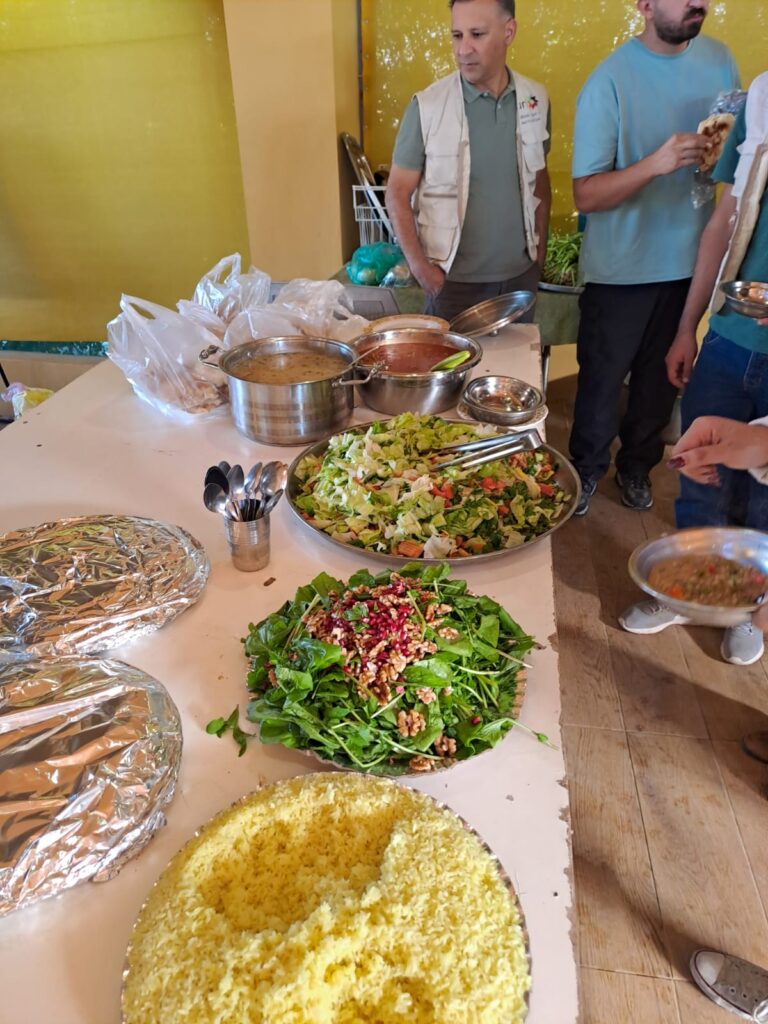
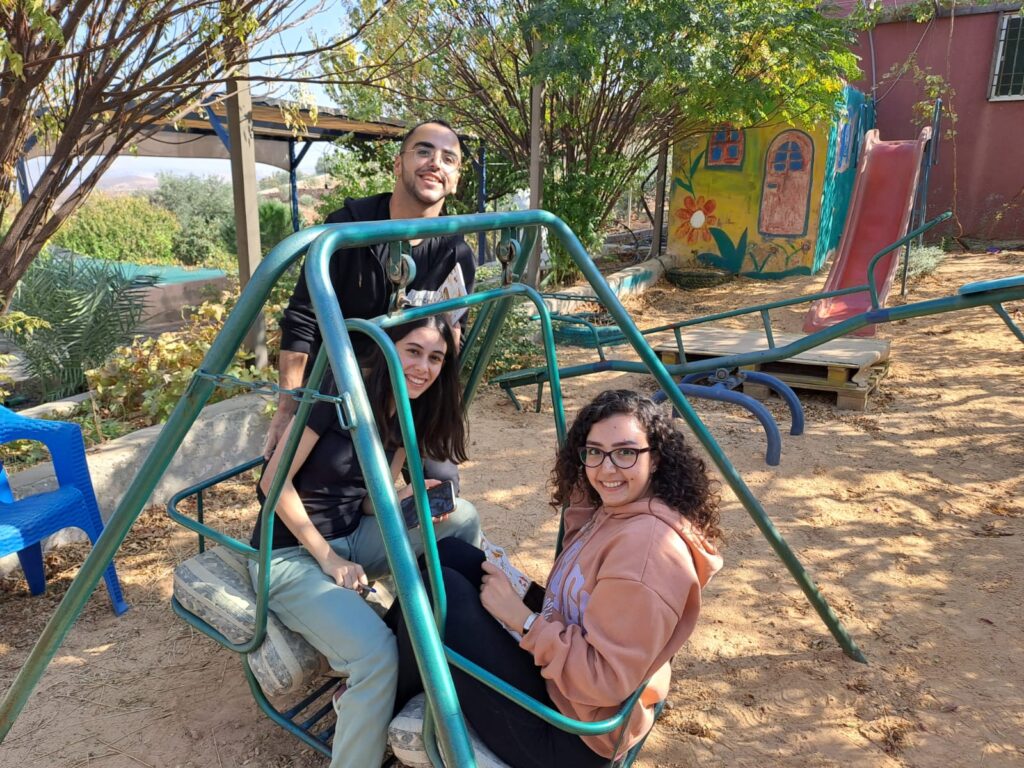
Meeting Nature
After a delicious vegetarian lunch, we prepared for the hike to the river. We enjoyed a beautiful view of the Jordan Valley and walked down to the river. At our destination, we enjoyed a picnic with Manakish and the beautiful calming atmosphere of nature around us. Being in nature or even watching scenes of nature reduces anger, fear and stress and increases pleasant feelings. Exposure to nature not only makes you feel better emotionally, it also contributes to your physical well-being by reducing blood pressure, heart rate, muscle tension, and the production of stress hormones. Self-care and Earth-care are interrelated, because taking care of ourselves can foster a sense of connection to the natural world and help sustain energy and motivation to better care for the planet. To go even deeper into the state of mindfulness, we enjoyed a nature meditation.
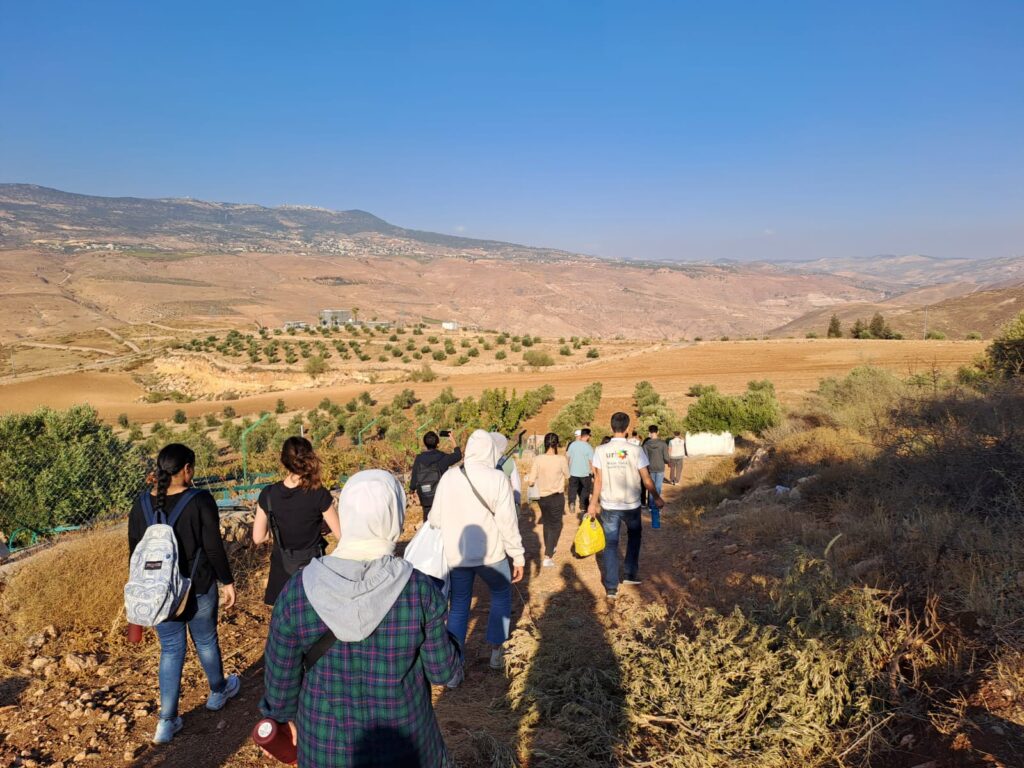
How to take action
As we face the climate crisis as perhaps the greatest challenge facing humanity, we concluded our workshop by brainstorming ideas on how we can take action to protect our environment. Everyone can contribute to limiting climate change and make a difference. From the way we travel, to the electricity we use, the food we eat, the things we (don’t) buy, planting trees, reducing (food) waste, we can make a difference. It is important that we raise awareness and talk about the climate crisis in our social environment. If we act as role models, our social environment will be positively influenced. On a more structural level, we can build strong communities to share resources and skills, and by fostering a sense of collective responsibility and empowerment, we can address the challenges of the climate crisis together. We can also join or create organizations, movements, and demand that politicians protect our environment. As a global phenomenon, we need to address the climate justice crisis as a global community, bringing together individuals from different cultural backgrounds. As each culture may have unique insights and innovative approaches to solving environmental problems, we can benefit from a rich exchange of ideas, knowledge and experiences.
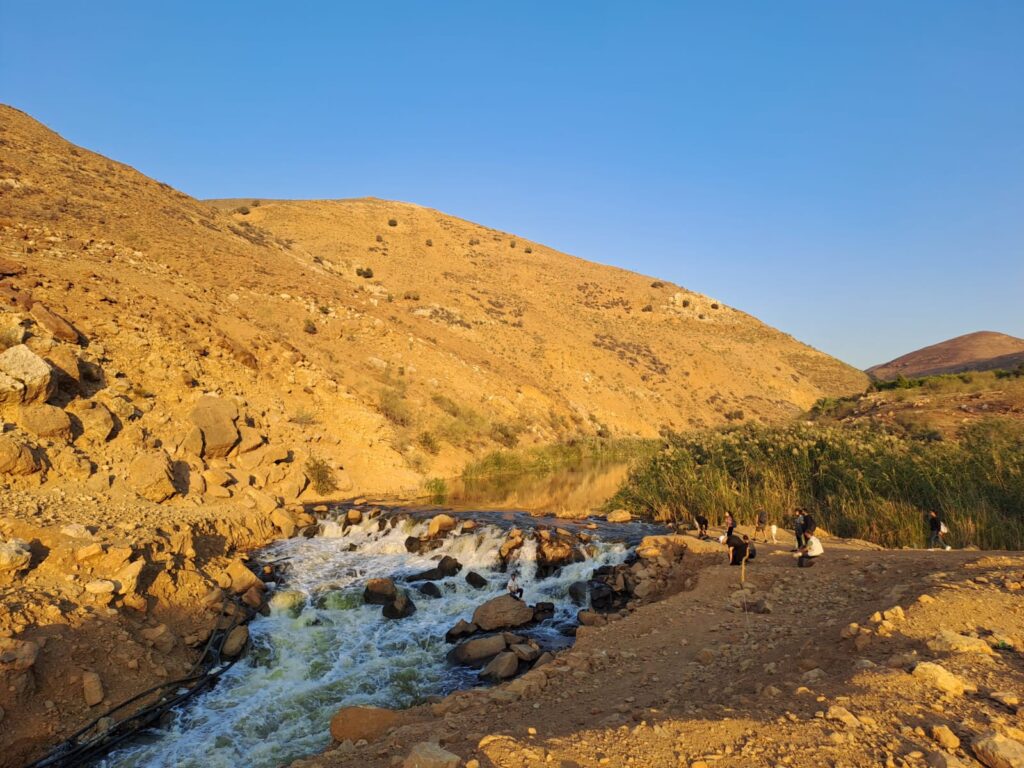
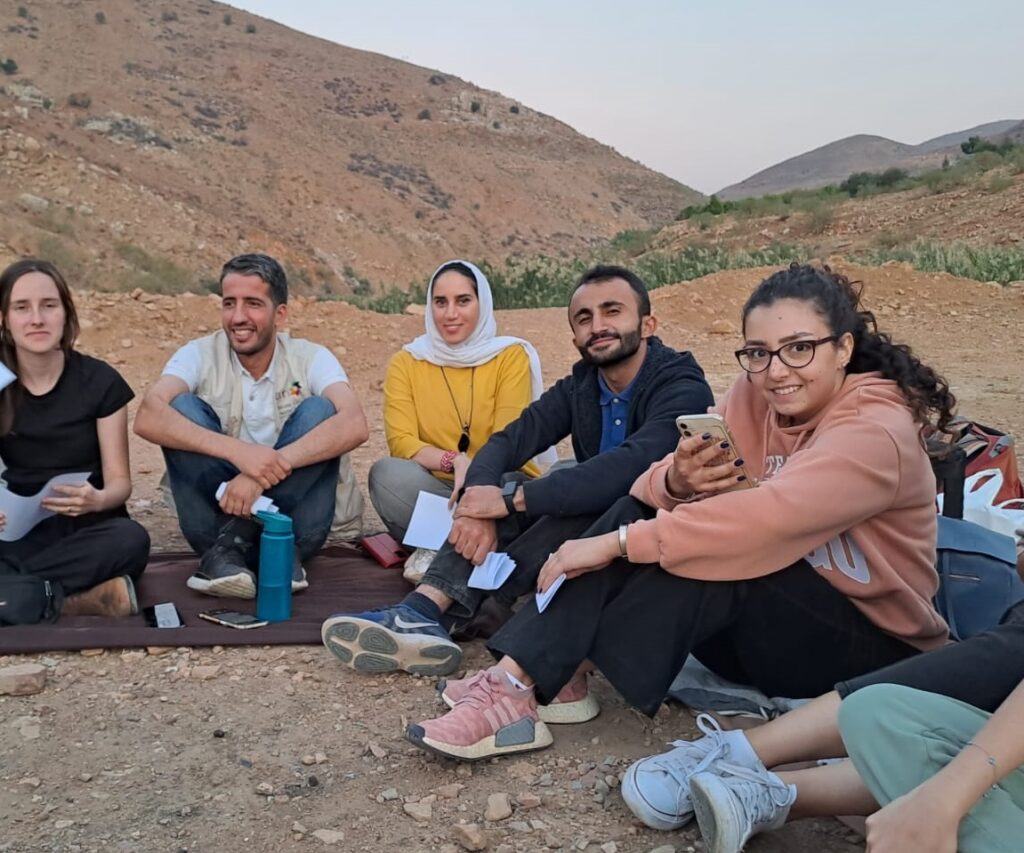
Our trip ended with an unexpected adventure when our bus was unable to pick us up from the river due to the steepness of the road and we hitchhiked with a tractor to the nearest point. What a great end to an interesting, exciting and nourishing day.
